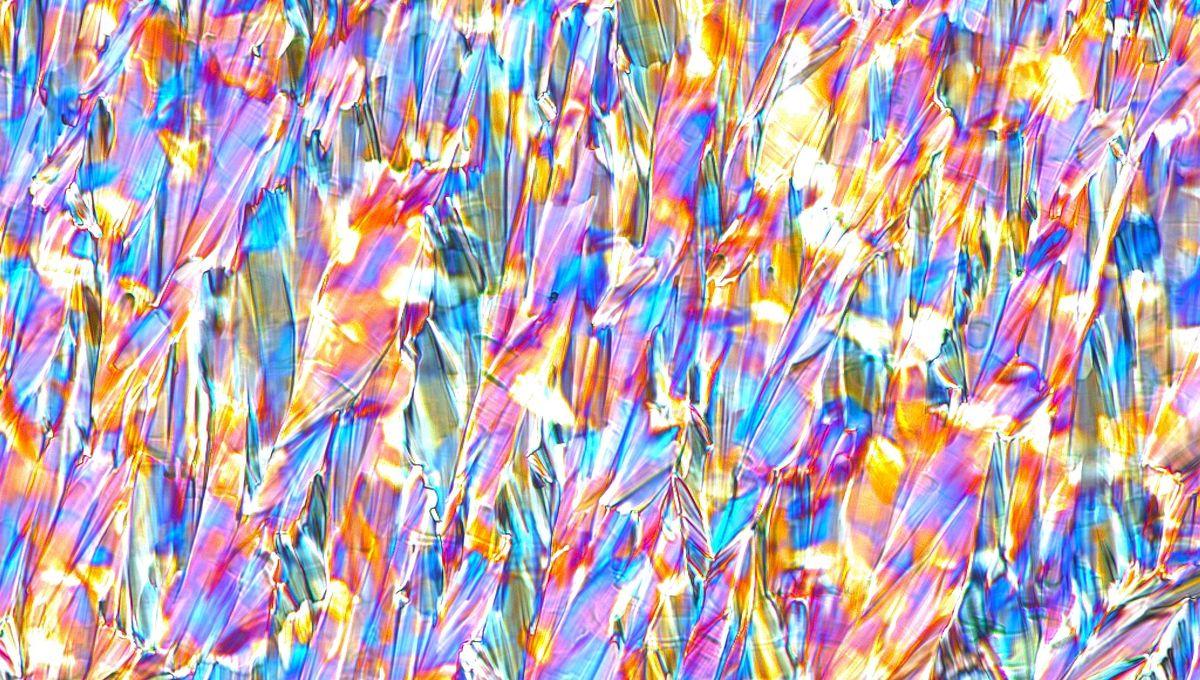-
أخر الأخبار
- استكشف
-
الصفحات
-
المدونات
-
المنتديات
New Liquid Crystal COVID-19 Test Could Be Quicker And More Accurate Than Lateral Flow

New Liquid Crystal COVID-19 Test Could Be Quicker And More Accurate Than Lateral Flow
Liquid crystals, the same technology found in TV screens, strip thermometers, and mood rings, could soon be used in the next generation of COVID tests. According to scientists at the University of Arkansas and the University of Alabama, such a test could return an accurate result in under two minutes, even when only trace amounts of virus are present.
The rest of this article is behind a paywall. Please sign in or subscribe to access the full content. You’ve almost certainly interacted with liquid crystals in your life. Even if you weren’t around for the heyday of mood jewelry in the 90s, you’ll have come across a liquid crystal display (LCD) screen on a phone, calculator, or TV. As a state of matter, liquid crystals sit somewhere between a solid and a liquid. The crystals themselves are rod-shaped molecules that line up in neat little rows, until something comes along that makes them change their orientation. In the LCD screen examples, it’s electricity that does it, leading to light being blocked in different configurations to create the display. In mood jewelry, the crystals respond to temperature, leading to the color changes (and if you didn’t know that we’re sorry to shatter the illusion). In the new COVID test, it is the binding of the SARS-CoV-2 spike protein to a metallic substrate that triggers the reorientation of the crystals. The reason why it works so well in this context is that liquid crystals like to follow the herd. When a few crystals on a surface start to turn, it triggers a chain reaction among the rest. “That's the beauty of liquid crystals. You can capture these events on the surface and transmit them over much larger length-scales,” said corresponding author and assistant professor of chemical engineering Karthik Nayani in a statement. Nayani and the team tested their sensor with yeast that had been modified to express the COVID spike protein on its surface. It was possible to get a positive result, visible to the naked eye, with around 2,000 copies of the spike protein per milliliter of fluid. A typical saliva sample from an infected person would contain more like 10,000 copies per milliliter at the very least. They also demonstrated reversibility, something lateral flow tests lack. After introducing anti-SARS-CoV-2 antibodies, the crystals went back to their original configuration. And the sensor was specific, only reacting to the spike protein and not to a range of different control molecules they tried. Not only could this lead to a cheap, accurate, rapid at-home test for COVID-19 – no more waiting 20 minutes and squinting at a barely visible line – it could also be adapted to other pathogens, even ones we haven’t identified yet. “The design principles enable the sensor to detect a range of analytes but crucially also novel pathogens for which specific binding interactions are unknown,” the team explain in their paper. They also say their technology could go further, being used to rapidly detect chemical weapons, nerve agents, pesticides, and harmful gases like formaldehyde. “The dream here is airborne detection,” said Nayani. “Now we're not even talking about it getting into our body.” The study is published in the journal Advanced Materials Technologies.


